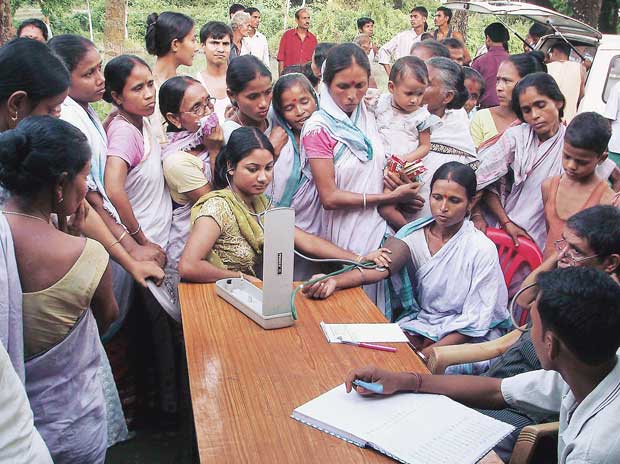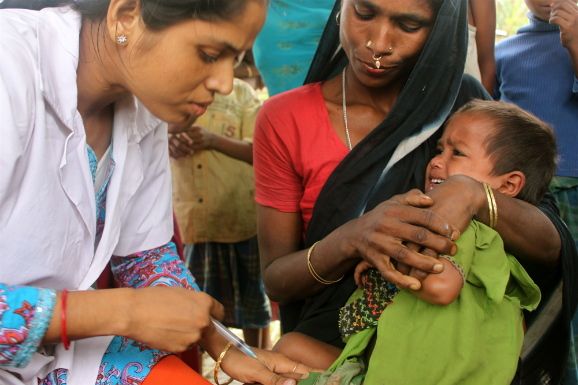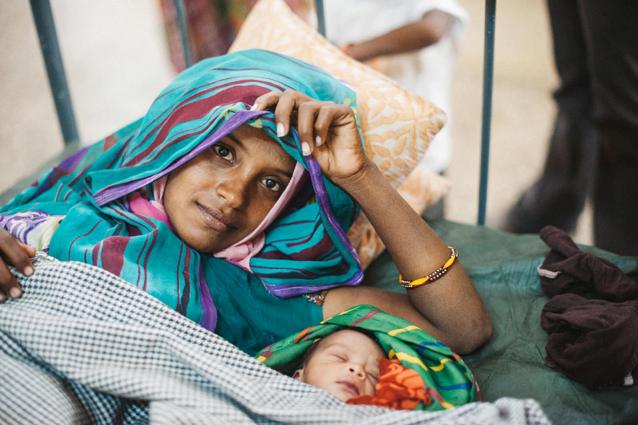Healthcare & Helping Under Privileged – Bageshwari Swasthya Yojana / Avneesh Samajotthan Yojana


Healthcare
"He who has health has hope; and he who has hope has everything" – Arabic proverb
India has made rapid strides in the health sector since independence. However, various eye opening data from NFHS clearly indicate that access to healthcare still remains a challenge for a large section of the society.
While the health statistics of rural India continue to be poor, the health status and access to health for the poor in urban slum dwellers has surfaced to be equally deplorable and have less than 4% of government primary healthcare facilities.
Urban slum dwellers suffer from adverse health conditions owing to mainly two reasons – first the lack of education and thus lack of awareness; and second the unwillingness to lose a day’s wage in order to reach the nearest medical facility. Healthcare for underprivileged, which is a basic need, thus remains unaddressed.
The need of the hour is thus a two pronged approach – first to bring quality healthcare services to doorsteps of the needy and second to promote healthcare awareness and contemporary healthcare seeking behavior among the underprivileged.
In such a scenario a mobile healthcare service delivery system is the most practical mechanism. And in subscription to this view, VSS has initiated the Bageshwari Swasthya Yojana. This is a unique mobile hospital program that addresses problems of mobility, accessibility and availability of primary healthcare with a special focus on children and women, in urban slums and remote rural areas.


Avneesh Samajotthan Yojana
The growth of the non-profit sector in India in the last two decades has been phenomenal. India has possibly the largest number of active non-government, not-for-profit organizations in the world. Official estimates put the number at 3.3 million. From relief services to educational initiatives, from healthcare projects to housing organizations, grass root NGOs work in numerous spheres which touch the daily lives of marginalized communities across the country. Engaging directly with the people, these NGOs are able to participate in the thought-making process of the communities they work with, and thus have the capacity to bring about long-term change. As such, the sector has had a substantial contribution in the nation building process.
But accelerated development soon reaches a stagnant point if it is not sustainable. Ensuring sustainability of initiatives requires a reorientation of NGOs focusing on their capacity building to attain competitiveness. This is not an easy transition, requiring NGOs to rethink and reform their program designs, planning, fund mobilization, fund management, and effective program delivery. There is also a need to guide these NGOs to be able to identify and adapt with the changing national and global socio-political and economic scenarios which affect them. To equip and facilitate grass root NGOs in the country to address these issues and eventually aim at achieving sustainable development on ground zero, VSS initiated Avneesh Samajotthan Yojana
A national capacity building programme, Avneesh Samajotthan Yojana is aimed at handholding, training and enabling community based organizations (CBOs) to maximize their impact on the ground. Under Avneesh Samajotthan Yojana initiative, CBOs are trained on vital issues relevant to the development sector in the country like scalability, sustainability, communication, resource mobilization and governance by industry experts from reputed Indian and international organizations. Handholding meetings and face-to-face learning sessions are held round the year to help the CBOs effectively resolve their day to day operational challenges, helping to achieve the highest social return on investment (SROI).
Avneesh Samajotthan Yojana is not only an effort to strengthen the bottom of the socio-economic pyramid in India, but also an attempt to bring transparency and accountability in the workings of the development sector at the grass root level.


Engagements:
• Provision of treatment for helpless sick people
• Financial assistance for treatment to families with minimum income
• Creating awareness among people about prevention methods against cancer, TB, malaria and other diseases
• Necessary help available for the senior citizens
• Providing necessary help in mother-child care during pregnancy and childbirth.
• Running campaigns to empower people physically and mentally

